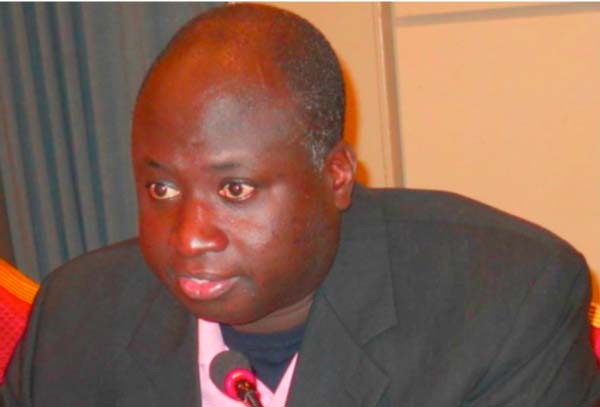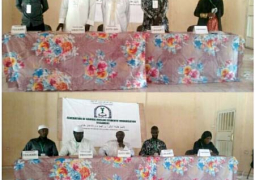
Defence
counsel Mene yesterday cross-examined one Yerro Saidy, a police officer who is
a witness, in the ongoing criminal trial involving Ebrima Jawara and three
others.
The other accused persons are Dr Alasan Bah,
former cooordinator of Rural Finance Project, Sulayman Manneh, an accountant of
the said project and one Hassan Bah.
When
the case was called before Justice Eunice Dada of the Banjul High Court, lawyer
Mene announced his representation for Mr Jawara, while lawyer Hawa
Sisay-Sabally appeared for Mr Bah, lawyer A.J. Njie appeared for Mr Bah and
held briefs for lawyer Segga Gaye, defence counsel for Mr Manneh.
“Mr
Saidy you said you received the copy of the audited report through the office
of the Inspector General of Police?”
“Yes”,
answered the witness.
Responding
to questions, the witness told the court he was not the head of the
investigative panel.
He
said ASP Ceesay at the time was the head of the panel, and Ceesay is now a
Supretendant Ceesay.
The
witness further adduced that the panel constituted six members and, after their
investigations, the report was attached to the case file and sent to the
Attorney General’s Chambers for advice.
He
said there was advice from the AG’s Chambers.
Asked
by defence counsel Mene whether he has a copy of the said advice from the AG
Chambers, the witness responded in the negative, but added that the report was
an original copy which the panel signed.
Asked
whether it had a cover letter, the witness responded in the negative.
Further
asked whether the panel had interviewed the 1st accused, the witness responded
in the positive, saying the panel interviewed the 1st accused person twice.
He
said the first was in the presence of the panel, and the second was in the
presence of an independent witness and the accused person’s lawyer.
Asked
about the name of the lawyer of the first accused, the witness responded that
it was Mr Drammeh.
“I
am putting it to you that Mr Drammeh was never present in any interview?”
“He
was there,” responded the witness.
The
witness said as far as the panel of investigation was concerned they
investigated from April 2008 to December 2015.
Asked
whether the panel received the audit report for April 2008 to December 2010,
the witness responded in the positive.
Asked
whether it was correct that the project would have one coordinator at a time,
the witness replied in the positive.
“During
the course of your work, were you able to ascertain that the accused person was
not appointed as the project coordinator from April 2008 to August 2010?”
“Yes,
he was not.”
“The
first accused person took over the assignment of Rural Finance Project on 2
November 2010?”
“That’s
not to my knowledge,” responded the witness.
“Do
you want this court to believe that in the course of your investigation you did
not determine when the first accused took over at the Rural Finance
Project?”
“We
know that he was appointed October 2010, but we don’t know when the office was
handed over to him.”
“It
is correct in order for your panel to be able to establish who was responsible
for what; it is important to know the various coordinators at a time?”
“Yes,
it is important to know the time of their appointment.”
“In
your evidence, you said the accused persons claimed that their fuel allowances
were approved by the project steering committees. Which accused person said
that?”
“All
the accused persons.”
“Your panel did not believe it because there
was no document to attest to it?”
“Yes,
and even if there was any document, the panel will not believe it.”
“Did
you as an investigative panel find out whether it is the project steering
committee that in fact approves it?”
“During
the course of the investigation the project steering committee was not in
town.”
At
this juncture, the case was adjourned until 14 November 2016, at 11a.m.



